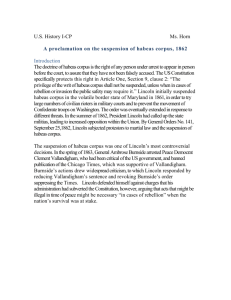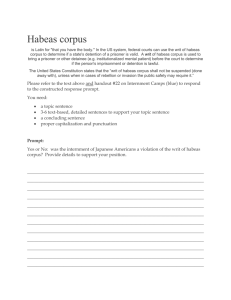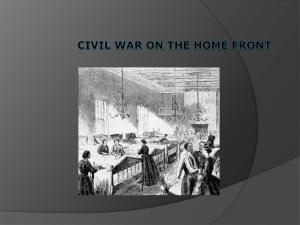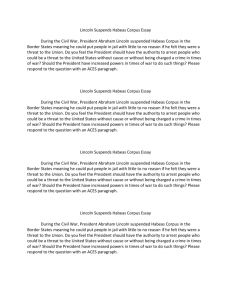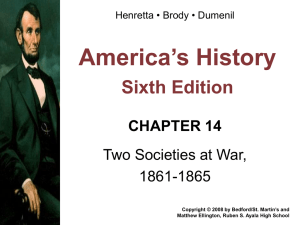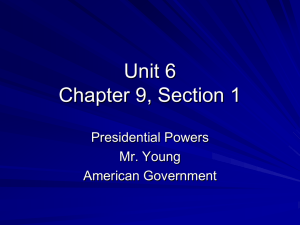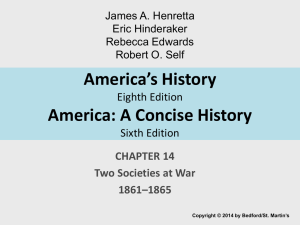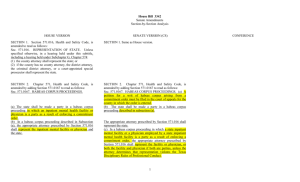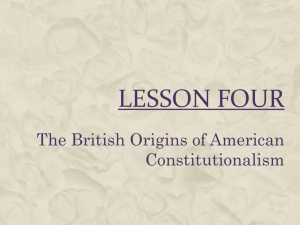Perpetual
advertisement
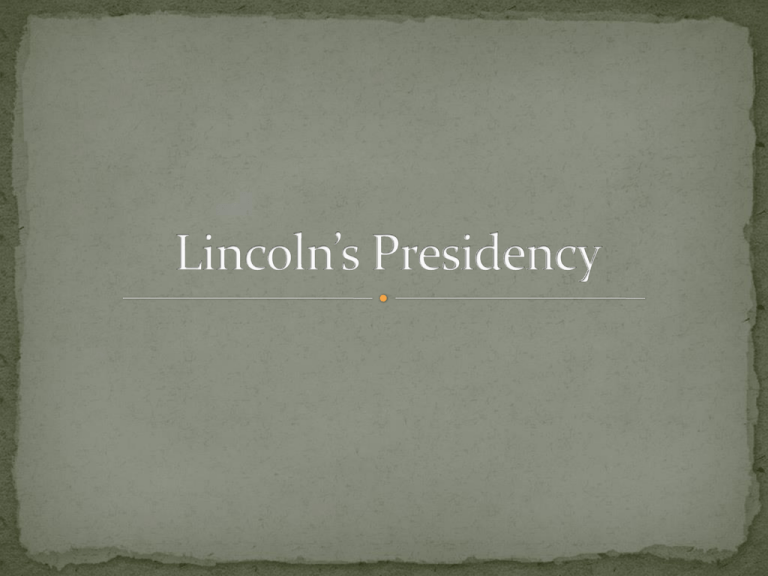
Address at Independence Hall, Philadelphia, 1861 First Inaugural Address, 1861 Message to Congress in Special Session, 1861 Emancipation Proclamation, 1863 The Gettysburg Address, 1863 Secession The Test of Democratic Self-Government Suspension of Habeas Corpus Emancipation of the Slaves Cand. Party PV EV Lincoln Rep. 40% 180 Douglas Dem. 30% 12 Brecken S. Dem. ridge 18% 72 Bell 13% 39 C.U. Principles of the Declaration as the bond of the Union America, the Declaration, and the promise of universal liberty Reiteration of Lincoln’s pledge not to interfere with slavery in the states where it already exists. Also, he would not object to a constitutional amendment guaranteeing slavery in the states where it already exists. Critique of secession: Perpetuity is implied in the fundamental law of all national governments. Even if the United States were merely a compact, it could be unmade only with the consent of all parties. The evidence of the Founding: Articles of Confederation and Perpetual Union The Constitution intended to “create a more perfect Union.” A further critique of secession The test of democratic government: can it preserve itself against an obstinate minority that would rather destroy the nation than accept the election’s outcome Secession is based on a belief in the sacred sovereignty of states, but in fact they have no sovereignty except under the Constitution. Secession is a principle of political disintegration. Secession would break up the government, based on equality of opportunity, that has done more than any other to elevate the condition of men. The issue of suspension of habeas corpus Taney’s opinion in Ex parte Merryman: The Executive Branch has no authority to suspend habeas corpus The British background on habeas corpus Founding-era practice The text of the Constitution Lincoln’s response: Appeal to prerogative: the need to violate one law to save the whole system of laws. The text of the Constitution: By implication, the Executive may suspend habeas corpus Criticisms of Lincoln’s use of the executive power People have been arrested who have violated no established laws of the United States. Habeas Corpus may be suspended only in the locality of rebellion. Lincoln’s response: The very purpose of suspension of habeas corpus is to permit the executive to arrest persons who have violated no law The process of regular courts of law is “vindictive.” Arrests made under suspension of habeas corpus are “preventive.” The Constitution does not limit suspension to the locality of rebellion, but permits it where the public safety requires it. Letter to O.H. Browning (1861) on Lincoln’s countermanding of Fremont’s emancipation order The constitutional problem The executive cannot make permanent rules of property The political problem Alienation of necessary support for the Union Letter to Horace Greely (1862) Lincoln’s policy: “I would save the Union.” Issued on Lincoln’s authority as Commander-in-Chief Presented as a matter of military necessity Accordingly, limited in scope to parts of the nation in rebellion against the government Question of Lincoln’s consistency: Is the Emancipation Proclamation consistent with the concerns in the letter to O.H. Browning?

